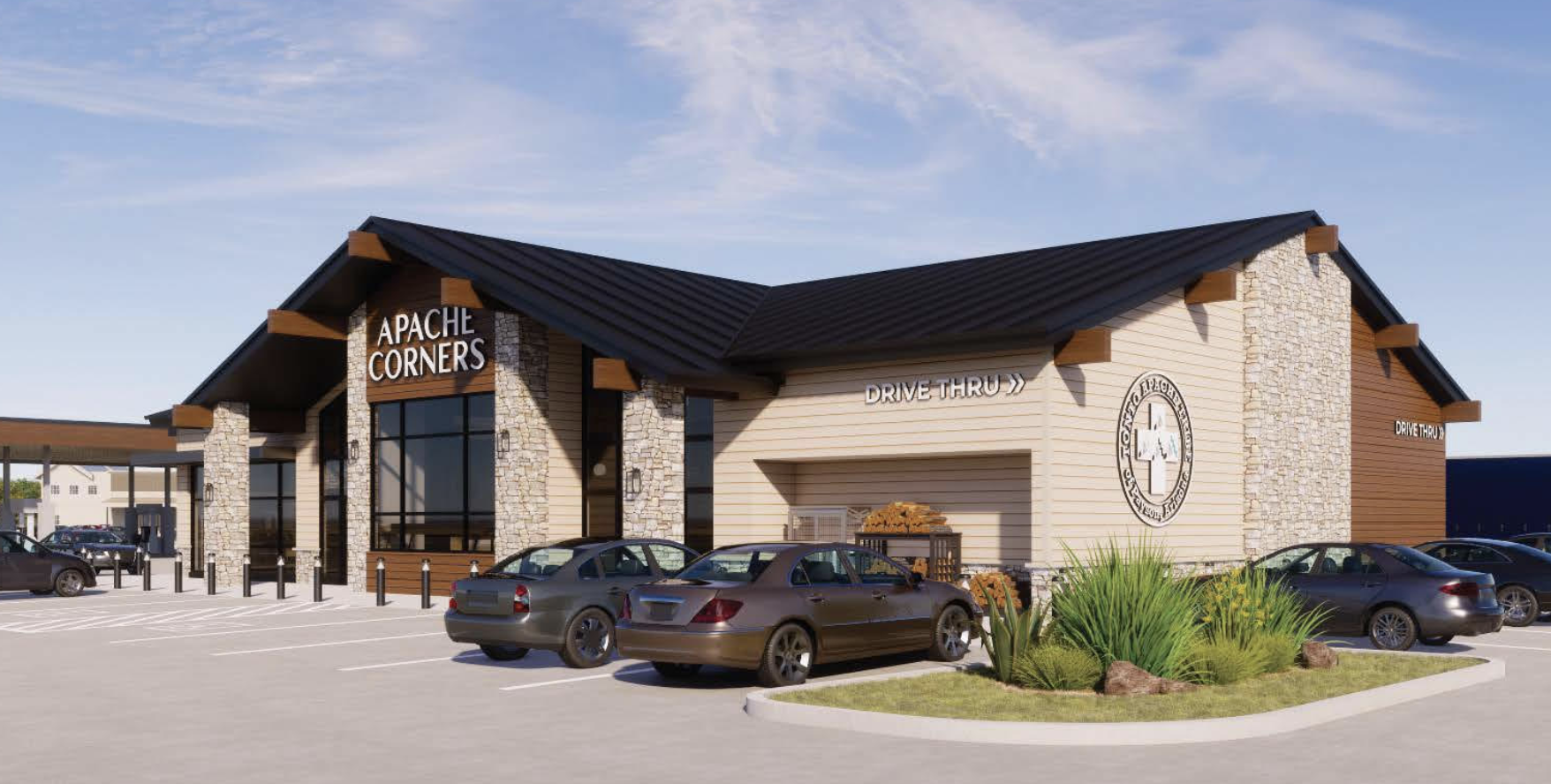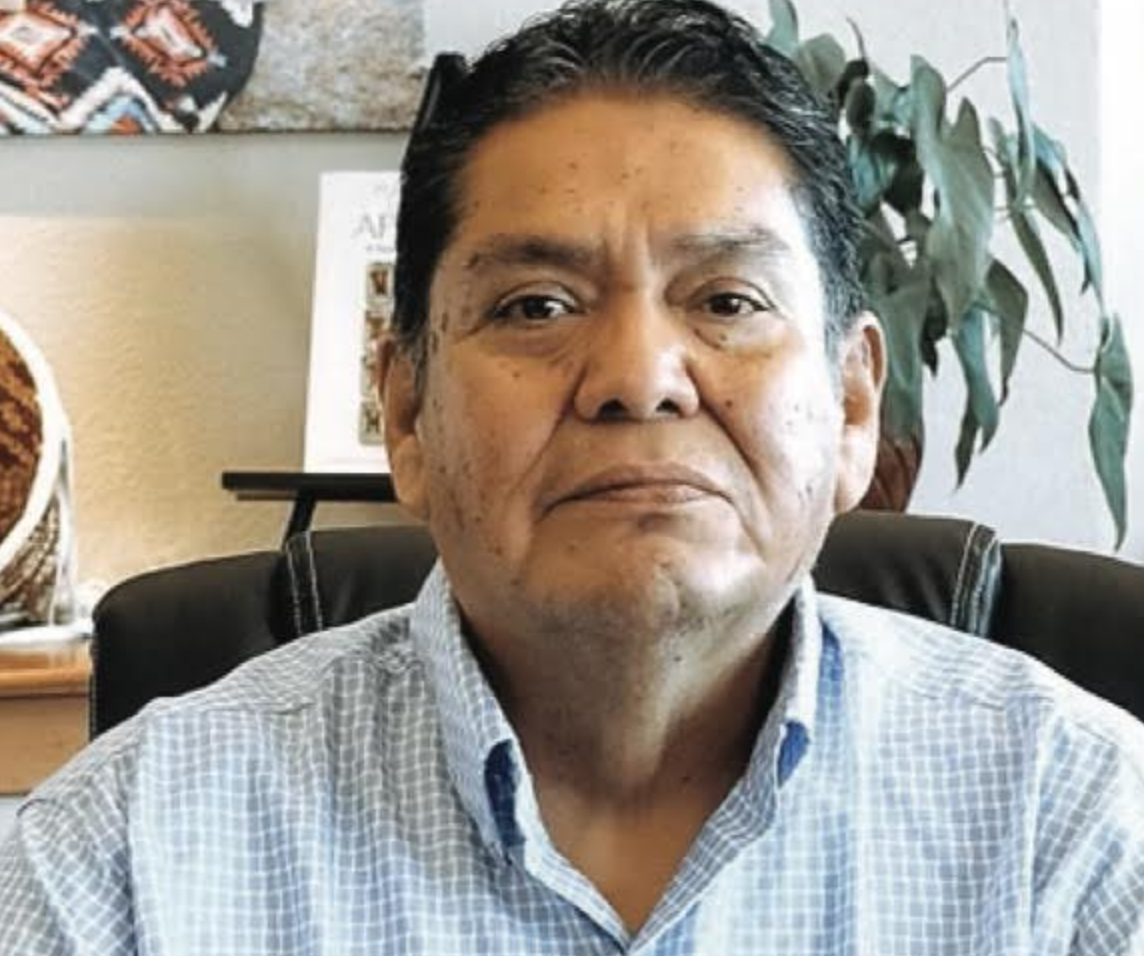
- Details
- By Levi Rickert
In response to the challenges of post-pandemic growth and shifts in federal funding, the Tonto Apache Nation has taken a bold step toward achieving economic sovereignty. Under the leadership of the Tribal Council and Chairman Calvin Johnson, the Nation committed in 2020 to optimizing economic opportunities and building a self-sustaining economy. Chairman Johnson emphasized their strategic approach:
“We are not just recruiting fast-food chains; we have carefully researched economic opportunities that will provide lasting benefits to our citizens and the entire region. By capturing dollars that previously left our economy, we can establish a strong foundation that creates jobs and increases tax revenue for the City of Payson, Star Valley, and all of Rim Country.”
Situated adjacent to the City of Payson—roughly 90 miles northeast of the Phoenix metropolitan area—the Tonto Apache Nation is spearheading transformative development with Apache Corners (www.ApacheCorners.com). This ambitious project is designed to serve as a catalyst for regional economic growth.

The initial $200 million development kicks off with a $60 million first phase, featuring an RV park, distillery and tasting room, additional convenience stores, a family entertainment center, and essential infrastructure improvements—including changes to the existing highway that divides the development site. Future phases are already in motion, with discussions underway for a major research university partnership, a healthcare center, a grocery store, housing, office space, light industrial facilities, and warehousing. The impact of Phase 1 alone is projected to generate approximately $89 million for the region and create over 1,000 new jobs.
The forward-thinking approach of Chairman Johnson and the Tribal Council has drawn recognition from prominent organizations such as the International Economic Development Council, the American Planning Association, and the Arizona Association of Economic Development. Chairman Johnson underscored their mission:
“We are focused on Economic Sovereignty, not just Financial Sovereignty.”
This momentum has also led to legislative action. A bill introduced in the U.S. Senate seeks to transfer 3,000 acres from the Tonto National Forest back to the Tonto Apache Nation. Senator Mark Kelly, a co-sponsor of the bill, voiced his support:
“This bill will give them more control over land that holds deep cultural significance, strengthening their community and connection to their heritage.”
With strategic planning and visionary leadership, the Tonto Apache Nation is paving the way for sustainable growth, economic independence, and a thriving future for the region.
More Stories Like This
Native News Weekly (August 25, 2024): D.C. BriefsNative Bidaské: The Illusion of Freedom and the Myth of America 250, Leonard Peltier Speaks Out
Monday Morning (March 2, 2026): Articles You May Have Missed This Past Weekend
Native News Weekly (March 1, 2026): D.C. Briefs
Scope Narrowed, Report Withheld: Questions Mount Over Michigan Boarding School Study
Help us defend tribal sovereignty.
At Native News Online, our mission is rooted in telling the stories that strengthen sovereignty and uplift Indigenous voices — not just at year’s end, but every single day.
Because of your generosity last year, we were able to keep our reporters on the ground in tribal communities, at national gatherings and in the halls of Congress — covering the issues that matter most to Indian Country: sovereignty, culture, education, health and economic opportunity.
That support sustained us through a tough year in 2025. Now, as we look to the year ahead, we need your help right now to ensure warrior journalism remains strong — reporting that defends tribal sovereignty, amplifies Native truth, and holds power accountable.
 The stakes couldn't be higher. Your support keeps Native voices heard, Native stories told and Native sovereignty defended.
The stakes couldn't be higher. Your support keeps Native voices heard, Native stories told and Native sovereignty defended.
Stand with Warrior Journalism today.
Levi Rickert (Potawatomi), Editor & Publisher


